Life
Sign up for our newsletter
We summarize the week's scientific breakthroughs every Thursday.
-
 Life
Life‘Darwin’s Backyard’ chronicles naturalist’s homespun experiments
In the new book Darwin’s Backyard, a biologist explores Charles Darwin’s family life, as well as four decades’ worth of his at-home experiments.
By Sid Perkins -
 Astronomy
AstronomyInquiries about the moon’s twilight zone, and more reader feedback
Readers had questions about the moon's tidal locking, quantum communication, microneedles and more.
-
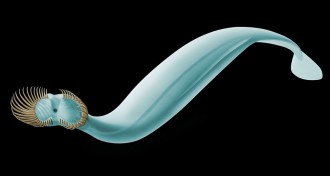 Paleontology
PaleontologyThis ancient sea worm sported a crowd of ‘claws’ around its mouth
A newly discovered species of arrow worm that lived over half a billion years ago had about twice as many head spines as its modern kin.
-
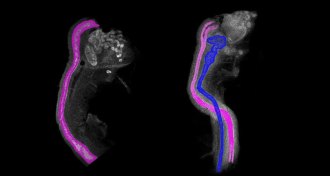 Life
LifeEmbryos kill off male tissue to become female
Female embryos actively dismantle male reproductive tissue, a textbook-challenging study suggests.
-
 Neuroscience
NeuroscienceHow an itch hitches a ride to the brain
Scientists have figured out how your brain registers the sensation of itch.
-
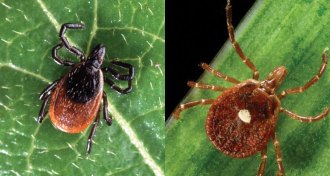 Health & Medicine
Health & MedicineA new tool could one day improve Lyme disease diagnosis
There soon could be a way to differentiate between Lyme disease and a similar tick-associated illness.
-
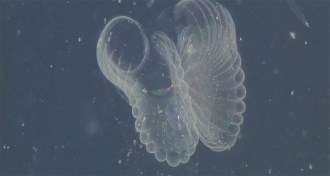 Animals
AnimalsGiant larvaceans could be ferrying ocean plastic to the seafloor
Giant larvaceans could mistakenly capture microplastics, in addition to food, in their mucus houses and transfer them to the seafloor in their feces.
-
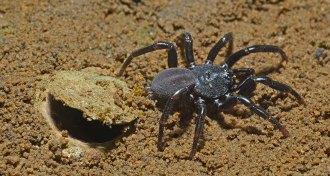 Animals
AnimalsThese spiders crossed an ocean to get to Australia
The nearest relatives of an Australian trapdoor spider live in Africa. They crossed the Indian Ocean to get to Australia, a new study suggests.
-
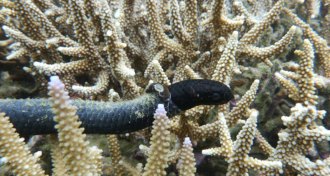 Life
LifePolluted water: It’s where sea snakes wear black
Reptile counterpart proposed for textbook example of evolution favoring darker moths amid industrial soot.
By Susan Milius -
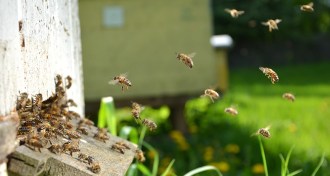 Astronomy
AstronomyWhat do plants and animals do during an eclipse?
A citizen science experiment will gather the biggest dataset to date of animal responses to a total eclipse.
-
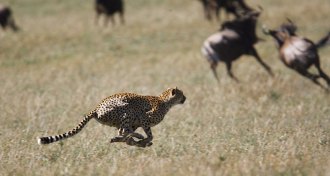 Animals
AnimalsWhy midsize animals are the fastest
New analysis delves into the mystery of why medium-sized animals are speedier than bigger ones.
-
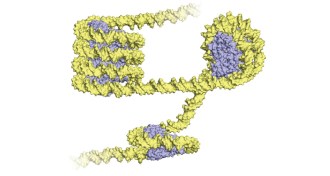 Genetics
GeneticsThe first look at how archaea package their DNA reveals they’re a lot like us
Archaea microbes spool their DNA much like plants and animals do.